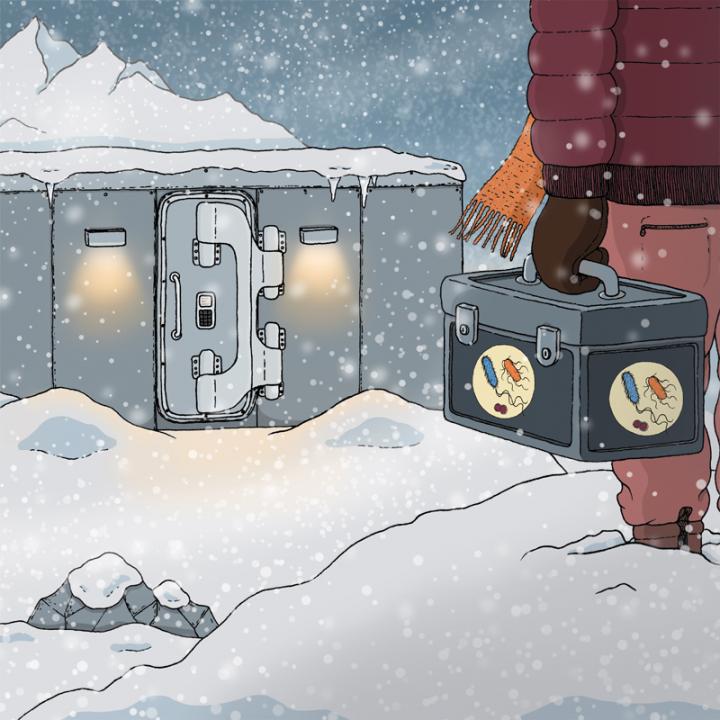The initiative will protect microbial diversity and long-term health of humanity

Credit: Joana Carvalho IGC 2020
The Rutgers University’s initiative will give an important contribute to the health of future generations, safeguarding microbe’s diversity . Karina Xavier and Luís Teixeira, principal investigators at Instituto Gulbenkian de Ciência, integrate the scientific experts panel and will promote the collaboration with Portuguese-Speaking countries in the sample collection process.
Many studies have assessed the impact of the environment, food and antibiotic consumption on the loss of diversity of the human microbiome and its negative effects in human health. The human microbiome includes the trillions of microscopic organisms that live on and in our bodies, contributing to our health in myriad ways. Microbiota Vault, will allow to preserve microbes so they can be stored, replicated and reintroduced in order to protect the health of future generations.
The project, that has been compared with the Svalbard Global Seed Vault, the world’s largest collection of crop diversity created in case of natural or human-made disasters, is led by Maria Gloria Dominguez-Bello, Professor at Rutgers University and Martin Blaser, Henry Rutgers Chair of the Human Microbiome, and by Professors Rob Knight and Jack Gilbert at the University of California at San Diego. In 2019, during a training for the scientific community promoted by the IGC in Lisbon, the support to this feasibility study was formalized. The study was prepared by an independent company in Switzerland, commissioned by the Seerave Foundation, the Gebert Rüf Foundation, the Instituto Gulbenkian de Ciência, Rutgers University, Kiel University, UC San Diego School of Medicin, Canadian Institute for Advanced Research, and Bengt E. Gustafsson Symposium Foundation, affiliated with Karolinska Institutet.
Instituto Gulbenkian de Ciência will have a decisive role on two fronts: by contributing with the scientific knowledge production in this research area and by enhancing the networks developed over the years by IGC’s Science for Development Programme, an advanced training programme for researchers from Portuguese-Speaking Countries in Africa and Brazil.
In addition to a centralized secure back-up collection, the Microbiota Vault initiative also involves a network of regional collections in countries with traditional peoples, who so far have been shown to have high diversity microbiotas, due in part to their natural diets rich in vegetable fibers. An international effort, including significant funding, would be needed to collect and store the collected microbes in a global repository.
###
Media Contact
Ana Morais
[email protected]
Original Source
https:/




